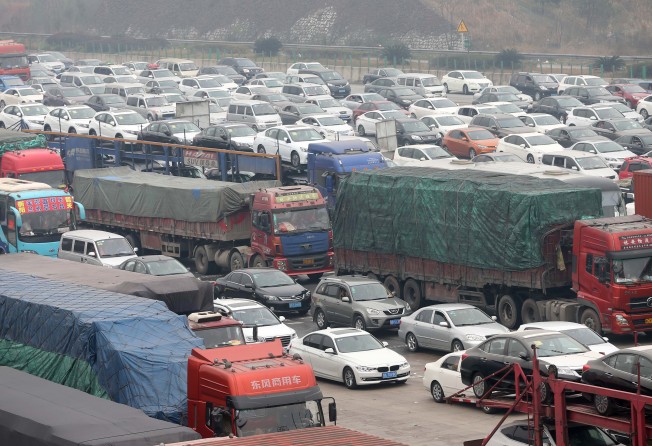Lifting the handbrake: China’s auto industry prepares to accelerate

Daily images of permanent gridlock on mainland roads might suggest China is close to car capacity. Nothing could be further from the truth, write energy analysts at a US investment bank; the world’s most populous country is on the verge of a sudden acceleration in car ownership that will drive revenue growth at car manufacturers and oil and gas producers for years to come.
Though a nightmare scenario for environmentalists and already stressed commuters, the conclusion should not surprise. Rising household wealth means families can now afford higher ticket items, and with only 7.8 private cars per 100 people, China’s vehicle hit rate still flags the 30 per cent level in neighbouring South Korea and is miles behind the 70 percentage point level in the US.
“Inflection for China’s increased car penetration and oil demand should happen right about now,” wrote Jefferies equity analysts in a report issued this week.
“China demand drove the investment commodity super cycle over the past decade. It will drive the consumption commodity (oil and gas) boom in the next decade.”
The driver for this inflection point is average household incomes. Per capita gross domestic product exceeded US$12,000 last year on a purchase power parity basis, $2000 above the point Jefferies analysts believe car ownership and oil consumption levels start to move up a gear.
The reason for the slow start is that China’s economy was historically investment led but this is changing as the government focuses on boosting personal consumption, wrote Jefferies, pitching PetroChina, CNOOC and Kunlun stocks for their mix of upstream and retail supply assets.
“Those with a long term investment horizon should basically buy all of China’s oil and gas supply chain. We believe oil and gas will move in tandem…as gas is increasingly accepted as vehicle fuel.”
In one finding that is likely to surprise; China’s roads are remarkably empty. Congestion levels are less than half those in the UK, said Jefferies. That’s a factor of having a majority of cars crammed into city centres leaving thousands of miles of intercity highway comparatively traffic free.
Jefferies rosy outlook assumes an average annual increase of between 2.4 and 3.8 million barrels of oil a day over the next decade before demand starts to plateau. The bank’s analysis makes no mention of provincial and city government efforts to put a brake on the car industry through restrictive ownership and usage rules. Several mainland cities periodically practise alternate drive days based on odd or even number plates while others hike car license fees to deter buyers.
Instead, Jefferies expects the past decade’s 22 per cent annualised growth in car ownership to continue. Last year, Chinese bought 23 million vehicle sales compared to 16.5 million sales in the US. Great Wall Motor and Changan Auto; makers of smaller utility vehicles will benefit, write Jefferies, as less well-heeled consumers seeks out cheaper marques.
The open road beckons; if drivers can get their cars out of the city centre.